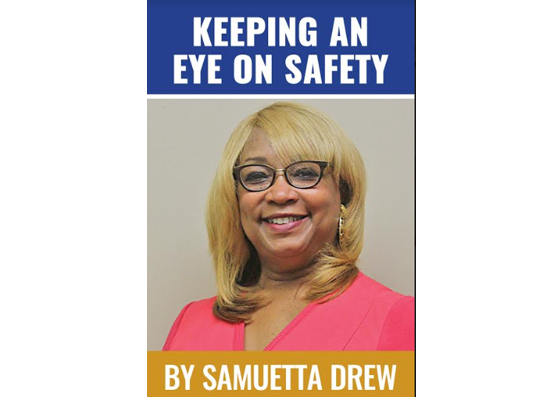By Samuetta Hill Drew
As our country attempts to turn the corner in the COVID-19 battle, the Centers for Disease Control and Prevention (CDC) believe it is increasingly important that all age groups get fully vaccinated. This includes adolescents from ages 12 and older.
The CDC feels getting a COVID-19 vaccination helps protect your child from getting COVID-19. Early information shows that the vaccine may help keep people from spreading COVID-19 to others. The vaccine can also help keep your child from getting seriously sick even if they do get COVID-19. Adolescents becoming fully vaccinated protects your entire family.
Last week we discussed how to prepare your adolescent for the two dose COVID-19 Pfizer-BioNTech vaccines and its benefits. This week’s article will continue that discussion by focusing on how to support your adolescent during and after receiving the vaccine.
If your child feels apprehensive, you may want to tell or read them a story to help make the shot easier. Support your child if he/she cries. Take deep breaths with your adolescent to help “blow out” the pain.
Below are some side effects the CDC says your child may experience in his/her arm:
• Pain
• Redness
• Swelling
The side effects the CDC states your child may experience from the vaccine throughout the rest of their body are:
• Tiredness
• Headache
• Muscle pain
• Chills
• Fever
• Nausea
Before leaving the appointment, ask the doctor/nurse for advice on using non-aspirin pain reliever and other steps you can take to comfort your child. Do NOT give your child an over-the-counter pain reliever BEFORE the vaccination to prevent side effects. It is OK to give this kind of medication AFTER your child gets a COVID-19 vaccine.
It is important you and your child read the Vaccine Information Sheet the appointment site doctor/nurse gives you to learn about side effects your child may experience. The CDC recommends the following to help ease any of those side effects
- Use a cool, damp cloth to help reduce redness, soreness and/or swelling in the place the shot was given.
• Reduce fever with a cool sponge bath.
• Offer liquids more often. It is normal for some children to eat less during the 24 hours after getting vaccines.
• Pay extra attention to your child for a few days. If you see something that concerns you, call your child’s doctor.
Female adolescents and their parents may also want to be aware that a small number of females have reported experiencing temporary menstrual changes after getting a COVID-19 vaccine. It is not clear if getting COVID-19 or a COVID-19 vaccine causes these changes. Further research is needed. Currently the CDC says there is no evidence that any COVID-19 vaccines cause fertility problems.
As our country attempts to turn the corner relative to this COVID-19 virus, it is essential that Keeping an Eye on Safety includes all appropriate aged individuals do their part in the COVID-19 battle.





